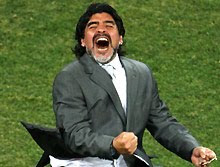

We’re all living in Maradona’s World Cup | World Cup 2010
JOHANNESBURG – Diego Maradona dominated the World Cup in 1986 like few players ever. Argentina won the event, of course, and Maradona was the awarded the Golden Ball as its best player. That was just a small part of it.
In a 2-1 quarterfinal victory over hated England, he scored twice in the disparate fashions that perfectly define him.
There was the “bad” – the illegal, self-described “Hand of God” goal when he purposefully punched the ball in. And there was the “good” – a spectacular, darting 50-yard run that was voted greatest in the history of the World Cup and hailed by many as the “Goal of the Century.”
And that was just one game.
In front of the media he was controversial and colorful and charismatic. He never backed down. He backed everything up. There was simply nothing like him.
In Argentina, some say, there is Eva Peron (“Evita”) and there is Maradona. He is some kind of Michael Jordan-Abraham Lincoln hybrid in his homeland’s history.
And now he’s back – nine lives, four World Cups, one friendship with Fidel Castro, a coke addiction (with multiple relapses), 100 pounds up and down (stomach stapled), a television career and who knows what else later.
It’s 1986 all over again. And while Maradona is wearing a gray suit and standing in the Argentine coaching box, not weaving through defenders, this World Cup is shaping up like that old one – all about Diego.
“I feel like I am putting on the jersey and going out on the pitch,” he said. “It’s beautiful. It’s beautiful indeed.”
His Argentinean team blasted through Mexico 3-1 on Sunday to set up a quarterfinal matchup Saturday against Germany, the 1986 runner-up (then just West Germany). It was a show of not just force but of spectacular ability – Carlos Tevez’s blast in the 52nd minute may be the prettiest goal of the event. Maradona’s team is playing brilliantly.
“They are doing the things perfectly well,” he said after.
Throughout it all, Maradona acted like Maradona, an over-caffeinated presence on the sideline and a stand-up comic in the press conference. He screams and cheers. He complains and cajoles. He smiles. He prays. He blesses himself. He hugs. Actually, he hugs a lot. He even kisses his players.
Pushing 50 yet wearing earrings and a salt-and-pepper goatee, he remains the biggest presence in the building – and that includes his megastar players such as Lionel Messi and Tevez.
“Victory always feels great,” Maradona said. “As a coach, as a player, there is not a major difference.”
As always it’s not what Maradona has done – getting his team to play as well as anyone. It’s how he’s done it.
He had no managerial experience when he got Argentina’s national team job in 2008. The man had been a wreck since his playing days (and even during them). He battled multiple addictions. He ate and ate. He had health issues, family issues, authority issues. He was distracted by politics.
Needless to say, organization was never a personal strong point.
So when he got the job, many in the media ridiculed the decision. When the team looked a mess during qualifying (Maradona used nearly 100 different players) they hit even harder. Diego Maradona as a coach? Diego Maradona as the calming influence on a team with so much talent and potential?
“Many journalists should apologize to the players,” he said last week, as Argentina rolled through group play. “I’m not suggesting you drop your trousers, but it would be honest and great so we all get along better.”
Yes, this is Diego Maradona. Don’t think that was his wildest quote of the World Cup, either.
When former Brazilian star Pele said Maradona was only coaching because he needed the money (which might be true since last year the Italian government claimed he still owed them $37 million euros in back taxes from his playing days there), Maradona couldn’t remain silent. He declared Pele should “go back to the museum.”
He got into a war of words with Union of European Football Associations president Michel Platini before dismissing Platini as arrogant – “That Platini, well, he’s French, what do you expect?”
He later apologized by saying, “[Platini] says he has never said what you [reporters] told me he said, so through you I would like to apologize to Mr. Platini … but not to Pele.”
Sunday’s press conference contained everything from his declaring a question “stupid,” reminiscing about being triple-teamed as a player, lamenting that as a coach he can’t swear on the sideline and asking that the questions (even stupid ones) continue since he was having so much fun talking.
“Finally I get a chance to speak and he wants to send me off,” he said of the moderator.
Each FIFA press conference features a game ball stationed next to the microphone. It’s nothing more than a decorative prop. When this session finally ended, Maradona stood up, stared at the ball and promptly scooped it up as walked off.
There was much laughter; Diego stole FIFA’s ball.
In the most curious way, all the fears of what Maradona would do and say at the World Cup have come true, yet not as a detriment to his team.
He’s been outlandish. He’s made this about himself. He’s picked fights and created trouble and made bold decisions that run in the face of fans and media (such as handing over the captainship to Messi, whose loyalty to the national team many fans have questioned due to previous subpar performances for the Albicelestes).
He has completely overshadowed his players.
Yet in doing so, he’s allowed his guys to stay out of the spotlight, to just shrug off the antics or their coach and laugh at the situation. Flying under the radar, with all the pressure on Diego Maradona, no one is playing looser, freer or with more confidence than the Argentineans.
“My relationship with the boys is excellent,” he said.
Just as when Maradona would make an open-field move that appeared too daring, too selfish and too risky only to find a way to make it brilliant, here he is again.
He actually may have even matured some. There was a brief, but quickly escalating, skirmish between some players at the end of the first half Sunday. Cursing and hair pulling were part of it. Maradona wasn’t offended by a potential fight. “What’s wrong with that?” he said.
Then again, he is the coach now so he raced to the middle of it and, quite surprisingly, busted it up. “We separated them before anything else could’ve happened,” he said.
Maradona the peacemaker?
We’ve seen it all. Except we’ve seen this act all before. It’s 2010. It’s 1986. It’s the World Cup shaping up to be all about Diego Maradona once again.

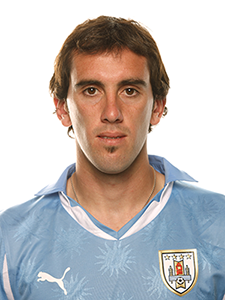 Diego GODIN | Uruguay
Diego GODIN | Uruguay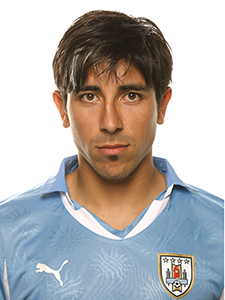
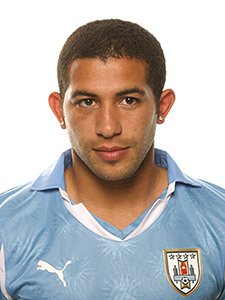






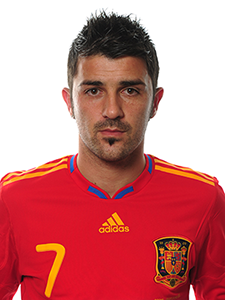




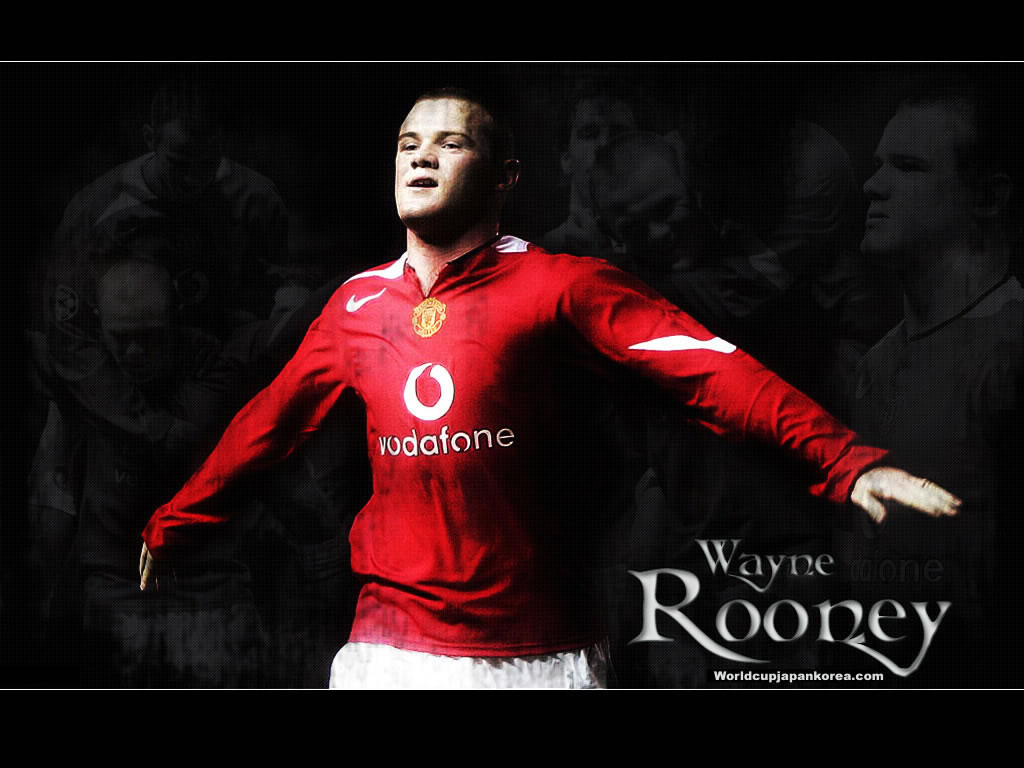

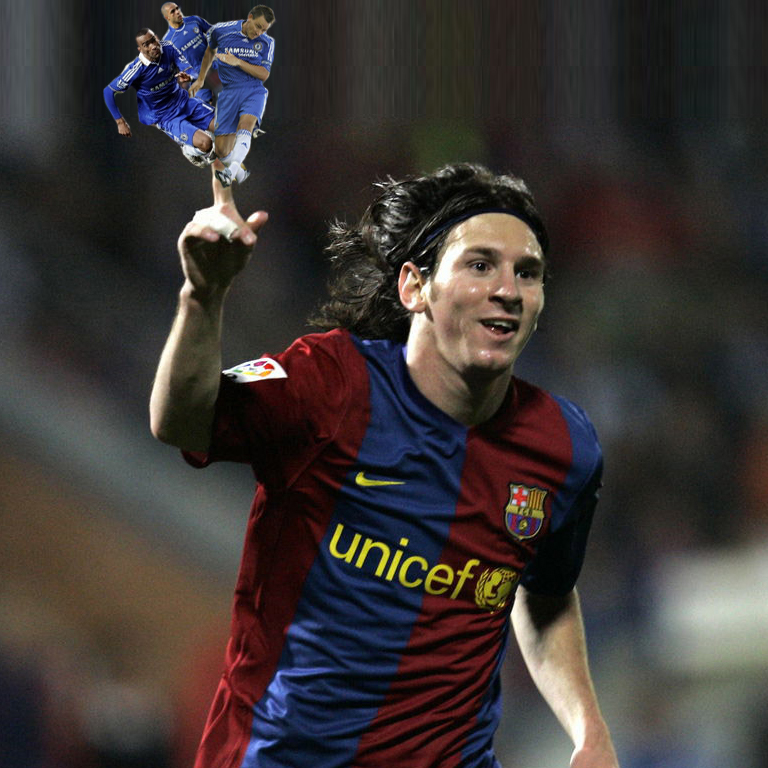
 THE MESSIDONA
THE MESSIDONA